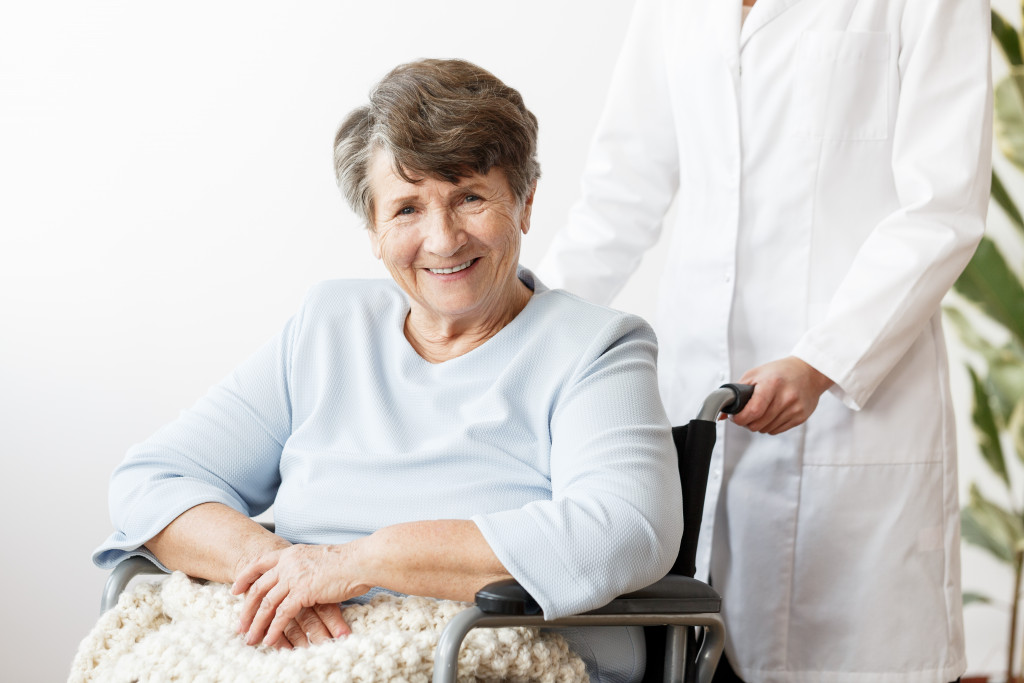Even if we do not want our parents and loved ones to grow old, there will come a time that they will. It is only natural for you to want them to be healthy. People’s dietary needs change as they age. These include the vitamins and minerals that they need to consume and the regular exercise they need to stay on top of their health. Most adults will start feeling certain aches and pains once they reach 40 years old, which is why they need to start having a healthy lifestyle early on.
It is also advisable for the elderly to check with their physicians regularly. If they need 24/7 monitoring or assistance, they can also stay at assisted living communities, where nurses and caregivers can help them out. Here are a few tips from experts on how you can help make your elderly loved ones feel great physically and mentally.
Healthy Diet
As our body changes and grows old, so do our immune system and overall well-being. A change in diet for the better is required to help strengthen the immune system.
According to the USDA, there are five key food groups that must be present on your (or your elderly loved one’s) plate — vegetables, fruits, grains, protein, and dairy. These are divided depending on how much your body needs them, with dairy having the smallest portion in the diet.
Make fruits and vegetables, especially green leafy ones, part of their daily diet. Choose lean protein, such as seafood, eggs, beans, and lean meat, and stay away from fatty foods. You also need to switch from using solid fats to oils when cooking or preparing meals—think olive oil instead of butter. When it comes to fruits, include citrus fruits, apples, and grapes. Whole wheat pasta and brown rice are the best choices when it comes to grains. They should also consume low-fat dairy or milk alternatives.
Safety First

You would want to keep your loved ones safe no matter what age. However, keep in mind that aging family members are more prone to breaking their hips or tailbone from slipping in the bathroom (or any part of the house). Install slip-proof mats in places where accidents are likely to happen. If your loved one is suffering from memory loss, make sure not to leave them home alone and avoid giving them access to appliances that can easily catch fire.
Equip your home with a fire extinguisher, write down important phone numbers (doctor, ambulance, police, and fire department), and leave them where they can be easily found.
If you need to be away for a long time, you can hire a caregiver to look after them and ensure their safety while you are away. It is crucial to prioritize safety, as it is harder to look back on what should have been done that could have prevented an accident.
Be Patient and Communicate
As parents age, it may be challenging for them to accept that their activities have to be limited. This means they will have to spend more time at home and give up doing things they used to love, such as traveling, hiking, cooking, or working, among other things. There will be times when they might push themselves to still do these. Hence, it is important to be patient and be there for them. Effectively communicate the disadvantages of what these activities can result in and offer alternatives.
It is important for elderly loved ones to feel productive and loved, and helping them discover new activities, hobbies, and interests will help make them happy. If communicating with a loved one becomes challenging, you may seek professional advice on handling or managing the situation.
It is also important for family members to be delegated certain responsibilities and for everyone to be a caregiver. This will help the main caregiver get some rest and take care of other priorities as well.
Caring for an aging parent or loved one is not an easy task. Depending on the age and health of the person they are caring for, it is possible for the caregiver to lose time taking care of themselves or their own family. If it becomes too difficult, talking to concerned family members about getting assisted living or nursing homes is also important. You can discuss the costs, pros and cons, and how often visits can be made. This type of community will also allow elderly loved ones to meet new friends and enjoy hobbies. This will also give them the opportunity to receive the proper care they need.
